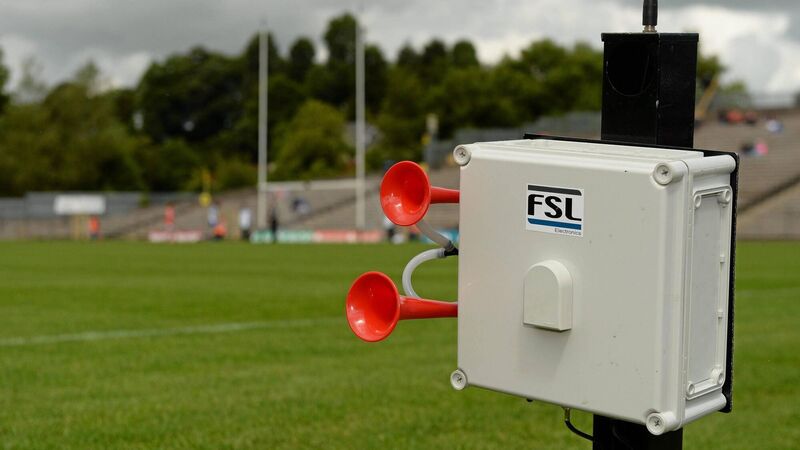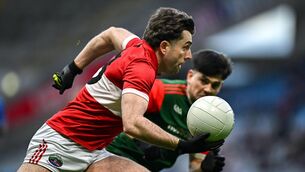Clock-hooter will only apply to Division 1 football games this weekend

WHAT A HOOT: The clock/hooter will only apply to Allianz Division 1 football games for the first two rounds, can confirm. Pic: Piaras Ó Mídheach / SPORTSFILE.
The clock/hooter will only apply to Allianz Division 1 football games for the first two rounds, the can confirm.
As part of the new suite of rules, the countdown clock will be in operation in this opening weekend but only in the top flight’s fixtures at Pearse Stadium (Galway v Armagh), O’Neills Healy Park (Tyrone v Derry), Croke Park (Dublin v Mayo) on Saturday and Fitzgerald Stadium (Kerry v Donegal on Sunday.











